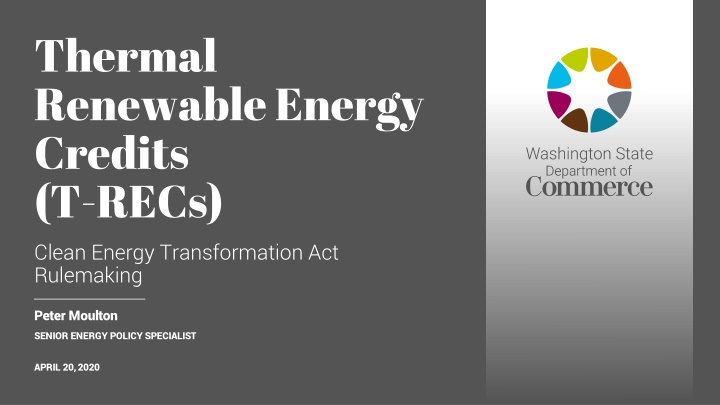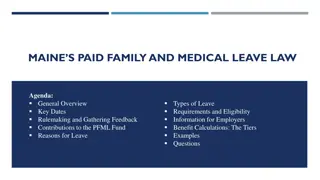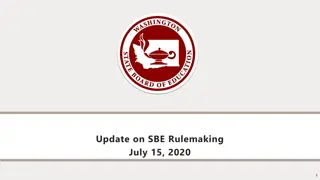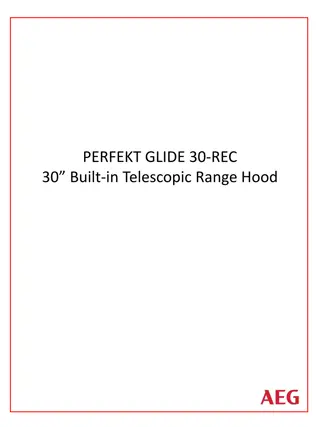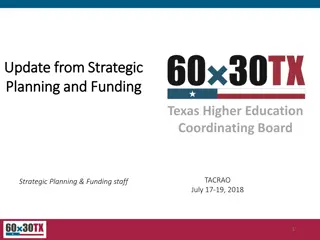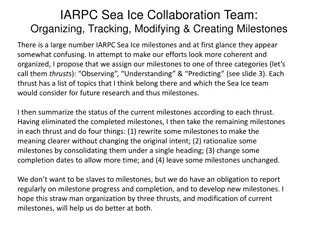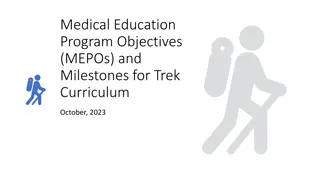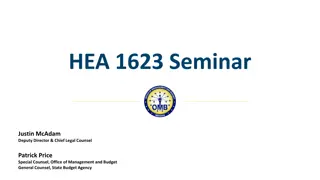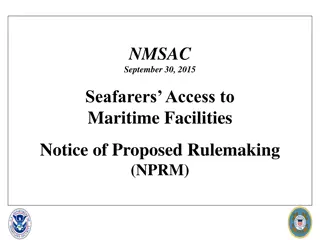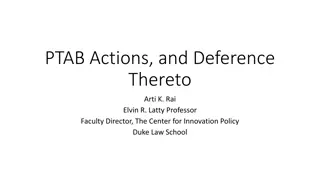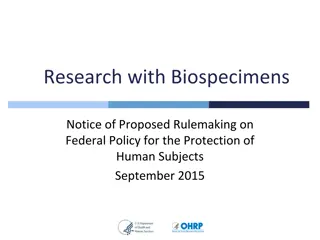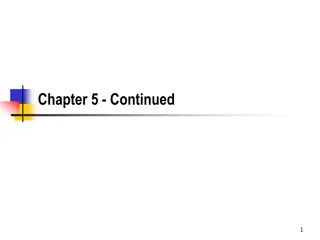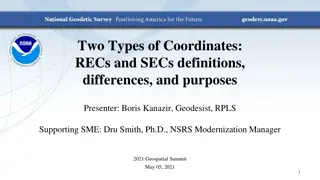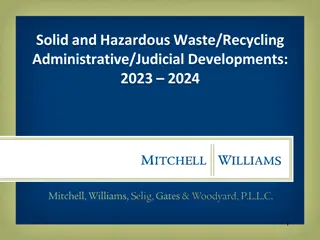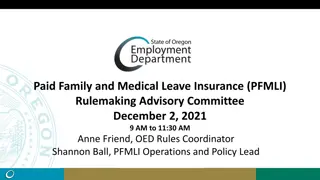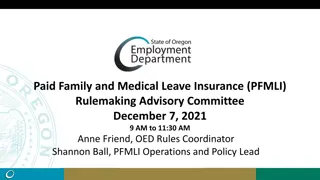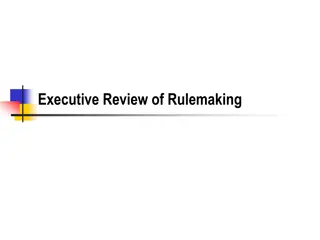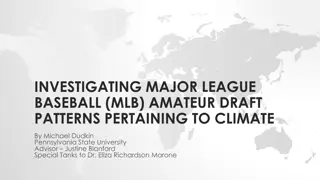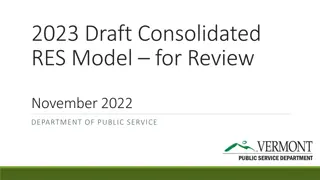T-REC Rulemaking Milestones and Proposed Draft Rules
This document outlines the T-REC rulemaking milestones, initial comments and responses, as well as proposed draft rules under the Clean Energy Transformation Act. It covers important dates, definitions related to thermal renewable energy credits, and the regulatory framework established by the Washington State Department of Commerce.
Download Presentation

Please find below an Image/Link to download the presentation.
The content on the website is provided AS IS for your information and personal use only. It may not be sold, licensed, or shared on other websites without obtaining consent from the author.If you encounter any issues during the download, it is possible that the publisher has removed the file from their server.
You are allowed to download the files provided on this website for personal or commercial use, subject to the condition that they are used lawfully. All files are the property of their respective owners.
The content on the website is provided AS IS for your information and personal use only. It may not be sold, licensed, or shared on other websites without obtaining consent from the author.
E N D
Presentation Transcript
Thermal Renewable Energy Credits (T-RECs) Clean Energy Transformation Act Rulemaking Peter Moulton SENIOR ENERGY POLICY SPECIALIST APRIL 20, 2020
T-REC Rulemaking Milestones March 27, 2020 First rulemaking workshop March 30, 2020 Comment period opens April 8, 2020 Deadline for initial comment period April 20, 2020 Second rulemaking workshop May 6, 2020 Deadline for additional comment period TBD Rules adopted 2 WASHINGTON STATE DEPARTMENT OF COMMERCE
Initial Comments & Responses Thermal Conversion Treatment of Condensate Monetization Dates Pairing T-RECs and Other RECs Legislative Report Conservation Targets & Double counting Linking Washington with Oregon Rules Animal Waste vs Human Waste 3 WASHINGTON STATE DEPARTMENT OF COMMERCE
Proposed Draft Rules 194-40-xxx Authority & Purpose. This chapter is pursuant to the authority granted in RCW 19.405.100, which requires the department to adopt rules for the measuring and tracking of thermal renewable energy credits used for compliance under RCW 19.405.040. 194-40-xxx Definitions. Biomass energy includes: (i) Organic by-products of pulping and the wood manufacturing process; (ii) animal manure; (iii) solid organic fuels from wood; (iv) forest or field residues; (v) untreated wooden demolition or construction debris; (vi) food waste and food processing residuals; (vii) liquors derived from algae; (viii) dedicated energy crops; and (ix) yard waste. Biomass energy does not include: (i) Wood pieces that have been treated with chemical preservatives such as creosote, pentachlorophenol, or copper-chrome-arsenic; (ii) wood from old growth forests; or (iii) municipal solid waste. 4 WASHINGTON STATE DEPARTMENT OF COMMERCE
Proposed Draft Rules 194-40-xxx Definitions. (cont.) Qualifying thermal energy means direct heat, steam, hot water, or other useful thermal form. Secondary purpose means an end use for thermal energy that: (a) Is for heating, cooling, humidity control, or mechanical or chemical work; and (b) for which a fuel or electricity would otherwise be consumed. Thermal renewable energy credit (T-REC) means, with respect to a facility that generates electricity using biomass energy that also generates thermal energy for a secondary purpose, a renewable energy credit that is equivalent to three million four hundred twelve thousand British thermal units (Btus) of energy used for such secondary purpose. Unbundled renewable energy credit means a renewable energy credit that is sold, delivered, or purchased separately from electricity. All thermal renewable energy credits are considered unbundled renewable energy credits. 5 WASHINGTON STATE DEPARTMENT OF COMMERCE
Proposed Draft Rules 194-40-xxx Applicability. Thermal renewable energy credits may be used to comply with the requirements of RCW 19.405.040 if they are created in association with the generation of qualifying thermal energy for a secondary purpose at a facility that generates electricity from biomass energy. For multiple-fuel facilities, only the portion of thermal energy generated from eligible biomass sources is eligible for the generation of thermal renewable energy credits. Thermal energy may not be used to comply with RCW 19.405.040 if: (a) It is used to operate the generating facility or process the facility s fuel; (b) it is returned to the biomass conversion device that initially created the eligible thermal resource; (c) it bypasses the electricity generation device; or (d) it is produced while the electricity generation equipment is out of service. 6 WASHINGTON STATE DEPARTMENT OF COMMERCE
Proposed Draft Rules 194-40-xxx Measuring. Qualifying thermal energy must be measured and tracked using the following methods: (a) Large facilities: Facilities with the capacity to generate one or more T-RECs per hour of operation must install a thermal energy measurement system to continually measure qualifying thermal energy. The thermal energy delivered to the secondary purpose must be metered. All parameters needed to determine thermal energy delivered to the secondary purpose must be directly measured. (b) Small facilities: Facilities with the capacity to generate less than one T-REC per hour of operation must install a thermal energy measurement system to measure qualifying thermal energy delivered to the secondary purpose. Calculation parameters, such as heat capacity, and directly measured parameters, such as temperature and pressure, that do not vary more than two percent for the full range of expected operating conditions may be evaluated on an annual basis and used in the calculation methodology as a constant. These parameters may be based on such sources as manufacturers published ratings or one-time measurements, but must be clearly defined and explained in the thermal energy measurement plan required under subsection (e). 7 WASHINGTON STATE DEPARTMENT OF COMMERCE
Proposed Draft Rules 194-40-xxx Measuring. (cont.) (b) Small facilities: (cont.) All other parameters used to determine the amount of qualifying thermal energy must be continually measured. The generating facility must assess the significance of any potential error that the methodology parameters have on the total annual quantity of qualifying thermal energy and include this analysis in the thermal energy measurement plan. The generating facility must also submit to the department for approval in the thermal energy measurement plan an appropriate discount factor to be applied to the qualifying thermal energy calculation methodology, and the department may revise this discount factor to account for variance due to parameters that are not continually measured. (c) The thermal energy measurement system must capture sufficient data, and make necessary calculations or provide all necessary data for calculations to be made using standard engineering calculation procedures, to determine the net thermal energy used by the secondary purpose over an interval specified in the thermal energy measurement plan. 8 WASHINGTON STATE DEPARTMENT OF COMMERCE
Proposed Draft Rules 194-40-xxx Measuring. (cont.) (d) Measurement system components must be installed in accordance with the manufacturer s specifications. (e) The generating facility must submit to the department a thermal energy measurement plan that describes the thermal energy generating equipment, secondary purposes, data measurements to be collected, all associated measurement devices, data formats and storage, data gathering techniques, measurement system calibration, calculation methodology, discount factors, and other relevant equipment and activities that will be used to determine the quantity of qualifying thermal energy. The generating facility must also submit all necessary documentation, including drawings, specifications, piping and instrumentation diagrams, and other information as requested by the department for system review. The thermal energy measurement system must be reviewed and approved by the department as part of the certification of a facility as compliant with these rules. 9 WASHINGTON STATE DEPARTMENT OF COMMERCE
Proposed Draft Rules 194-40-xxx Measuring. (cont.) (f) The generating facility must submit an updated thermal energy measurement plan and documentation for review and approval to the department upon the following: Installation, removal or changes in the configuration of the thermal energy measurement system and its components; Installation of new thermal energy generation equipment or changes in thermal energy generation capacity; Installation or removal of secondary purpose equipment, changes to secondary purpose use, or changes in the secondary purpose maximum thermal energy demand; or Indications the thermal energy measurement system is not performing in accordance with the thermal energy measurement plan 10 WASHINGTON STATE DEPARTMENT OF COMMERCE
Proposed Draft Rules 194-40-xxx Tracking. (a) Where continual measurements are required to determine the quantity of qualifying thermal energy, the generating facility must take data readings at least once per hour or more frequently as necessary to capture irregular or frequently varying parameters. For all facilities, the qualifying thermal energy produced shall be totaled for each 24-hour period, each month, and each quarter. (b) The generating facility must retain measured data and related thermal energy calculations on-site for five calendar years and make records available for audit as required by the department. 11 WASHINGTON STATE DEPARTMENT OF COMMERCE
Proposed Draft Rules 194-40-xxx Tracking. (cont.) (c) Prior to measuring qualifying thermal energy for the purpose of generating T-RECs, the generating facility must perform, or have performed, an initial calibration of the thermal energy measurement system and all associated measurement devices, or demonstrate that a calibration has been performed as specified by system component manufacturers or within the last 365 days of the application date for certification as compliant with these rules. All measurement devices shall be recalibrated annually or as specified by system component manufacturers to maintain specified accuracy. Calibrations must be performed using the calibration procedures specified by the meter manufacturer, calibration methods published by a consensus-based standards organization, or other industry accepted practice. (d) Individuals designing, installing, operating, and maintaining the thermal energy measurement system must have appropriate training and certification. The generating facility must maintain documentation of maintenance and calibration activities. 12 WASHINGTON STATE DEPARTMENT OF COMMERCE
Proposed Draft Rules 194-40-xxx Reporting. Reporting must be conducted in accordance with all reporting requirements of the Western Renewable Energy Generation Information System. 13 WASHINGTON STATE DEPARTMENT OF COMMERCE
T-REC Rulemaking Milestones March 27, 2020 First rulemaking workshop March 30, 2020 Comment period opens April 8, 2020 Deadline for initial comment period April 20, 2020 Second rulemaking workshop May 6 Deadline for additional comment period TBD Rules adopted 14 WASHINGTON STATE DEPARTMENT OF COMMERCE
www.commerce.wa.gov www.commerce.wa.gov Thank You! Peter Moulton SENIOR ENERGY POLICY SPECIALIST CETA@commerce.wa.gov (360) 725-3116
